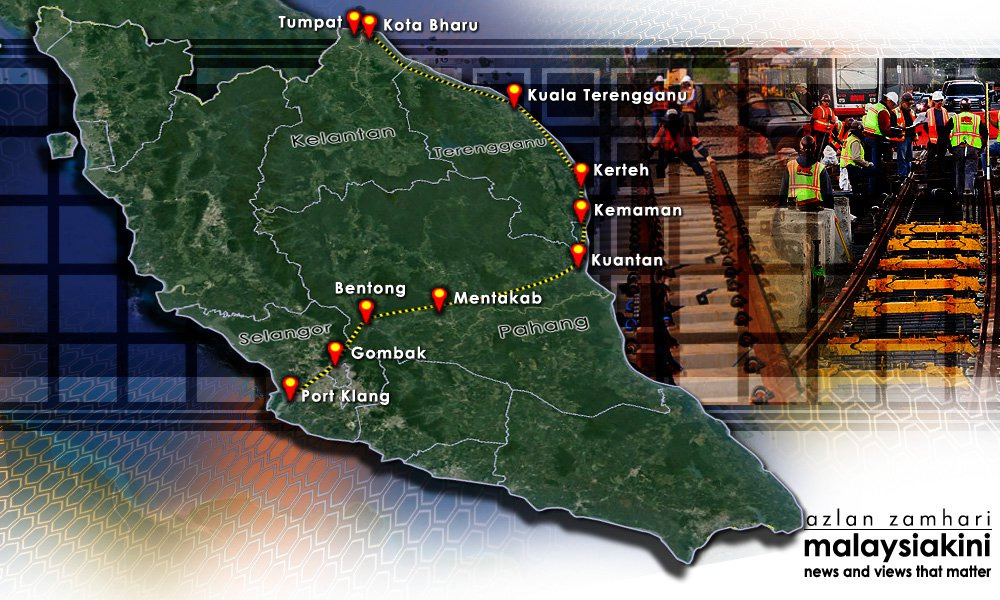COMMENT | I refer to the Malaysiakini article With GST exemption, toxic China connection begins to show.
With regards to the East Coast Rail Link (ECRL), exempting it from the GST does not mean the government will incur losses since it is the final buyer of this project.
In their efforts to spin the GST exemption for the ECRL project and further confuse the public, Amanah's Husam Musa and former KiniBiz editor P Gunasegaram both claim that the government will lose money by giving this exemption.
Gunasegaram even went to the extent to declare me and Customs and Excise Department Director-General Subromaniam Tholasy as wrong to say that the exemption helps save the government money.
This although it is unthinkable that the director of the agency directly responsible for collecting GST and who is also an expert on GST is also wrong about GST.
Nothing is further from the truth. Let me explain in simple terms.
Assuming that the price of an imported good is RM55 and this product is sold in a mini-mart. Let's further assume that this particular good is a shirt and hence falls under the GST taxable list.
Thus the price of this shirt inclusive of GST in the shop would be RM58.30 to the buyer. In this case, the shop will keep RM55 and remit the GST of RM3.30 to the government.
Assume the buyer is also the government then this means it is also the government who has paid this RM3.30 in GST to the shop who will then pay back this exact amount to the government.
Now, let's say a particular good is now a GST-exempt item. Let's say its infant baby milk powder.
The price of the good sold at the shop will then be RM55 as no GST is charged. The buyer pays RM55 and brings home the good.
As you can see, the price of the good is still RM55. Exempting it from GST does not mean that price of the milk powder will reduce to RM51.90 and that the government has "lost" RM3.10 in GST revenue.
This is the spin that Husam Musa and Gunasegaram are trying to propagate which is entirely false.

Similarly, in the case of the ECRL, the RM55 billion project being exempt from GST does not mean the cost of the project drops to RM51.90 billion and the govt has "lost" billions in loss of GST collection.
In fact, the reverse is true.
If the total cost of the ECRL project has to include GST then the project would have cost RM58.30 billion instead.
As the government is financing this project including 85 percent of this via a friendly soft loan from China, imposing GST on this project will also mean increasing the total amount that is needed to be borrowed to RM58.30 billion instead of RM55 billion.
This would mean an additional RM3.3 billion has to be borrowed whereby interest cost would be incurred. An interest cost of 3.25 percent as per the soft loan on RM3.3 billion would mean RM107 million in interest.
Therefore, exempting the ECRL project from GST would mean that the total project cost will remain at RM55 billion and not increase the loan size required hence saving the government money - exactly what I and the customs director-general said.
Let us be clear on this point. As the government is the final buyer of this ECRL project, any GST collected in the course of this project would have meant that it is the government itself who will be paying the full GST cost eventually - which the government will then receive back from the main contractor.
Thus exempting this ECRL project from GST does not mean the government will lose money but in fact, it has saved money by avoiding additional financing cost.
Hope this clears matters. And I hope that the opposition politicians do not continue to spin this matter to lie to their supporters.
ERIC SEE-TO is BN strategic communications department deputy director.
The views expressed here are those of the author/contributor and do not necessarily represent the views of Malaysiakini.

